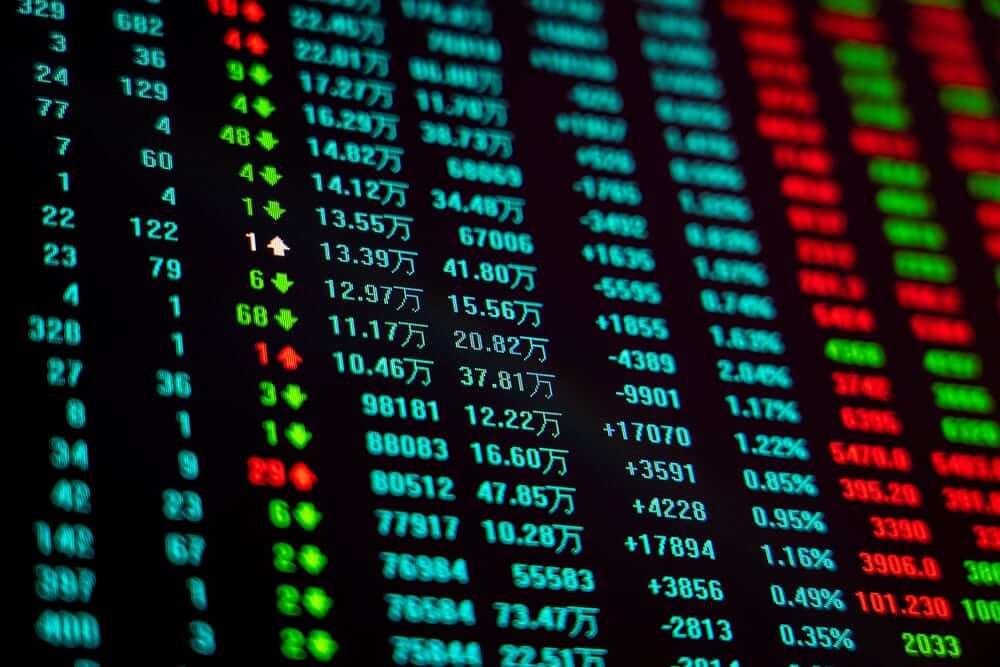
Stocks Drop as China Warns Against Pelosi visit to Taiwan
Stocks fell, and U.S. government bond prices rose. U.S. House Speaker Nancy Pelosi’s expected visit to Taiwan has raised the prospect of a forceful military response from China. The Hang Seng fell 3.2 percent on Tuesday, later paring some of its losses. CSI 300 index decreased by 2.8 percent. The Stoxx 600 stock index lost 0.7 percent. The FTSE 100 added 0.1 percent.
Concerns over a potential crisis in the Taiwan Straits have also fueled a shift to haven assets; As the 10-year U.S. Treasury yield fell 0.04 basis points to 2.56 percent, thus approaching a four-month low. The moves came as Pelosi prepared to meet with Taiwan’s president on Wednesday, Despite growing opposition from Beijing and US-China tensions that raise the possibility of global trade disruptions. There is speculation, among other things, that the Chinese could make a service mark and impose some form of economic sanctions. A spokesman for China’s foreign ministry warned that “the People’s Liberation Army of China will not sit down if Pelosi continues her visit.
On Monday, China conducted military exercises on an island in the Taiwan Strait. And China’s Maritime Safety Administration has promised more drills from Tuesday to Saturday. The U.S. National Security Council communications chief said China is potentially positioning itself to take further steps in the coming days, including military provocations, such as firing missiles into the Taiwan Strait.
Stocks and Concerns
The FTSE All-World index has fallen 15.6 percent this year. This has been reduced by Russia’s invasion of Ukraine and rising inflation caused by sanctions and trade disruptions. This forced the central banks to raise interest rates. Futures trading indicated that Wall Street’s S&P 500 index was down 0.5 percent in early New York trading on Tuesday. Contracts for the tech-heavy Nasdaq 100 index fell 0.5 percent. The reference price of Brent oil decreased by 0.9 percent; In total, it reached 99.14 dollars per barrel. The Japanese yen rose to ¥130.39 against the dollar, up 0.9 percent.
More risk-sensitive currencies fell. Sterling rose to 1.22 USD. The Australian dollar fell 1.4 percent to 69 U.S. cents. The soft summer trading environment also fueled market moves. According to strategists, this is a month of low liquidity. If something big happens, it could multiply in such thin trading.
Conclusion
U.S. crude oil prices dropped 4.8 percent, dragging down energy shares. Exxon Mobil lost 2.5 percent. Those losses outweighed solid gains at retailers and consumer goods manufacturers. Procter & Gamble rose 2.9 percent. Boeing jumped 6.1 percent for the biggest gain in the S&P 500; After clearing a major hurdle with federal regulators, it may soon resume deliveries of its large 787 jet.
Stocks have been dropping as investors are concerned about rising interest rates and high inflation. The main worry is whether central banks will gain interest rates too hard and turn the economy into recession. The Fed gained its main short-term interest rate by 0.75 percent on Wednesday. This raised it to the highest level in 2018. A gauge of inflation, which the Fed watches closely, rose 6.8 percent in June from a year ago. This is the hugest rise in recent decades. Increasing oil prices during the year only troubled the impact of inflation. U.S. crude oil prices are up about 25 percent in 2022. This pushed gasoline prices to record highs in the U.S.
A report last week showed that the U.S. economy shrank last quarter; Therefore, it may end up in a recession. The recent rally in stocks came after troubling economic reports gave some investors confidence that the Fed could reduce the aggressive pace of rate hikes sooner than expected. Several major companies report earnings this week, giving investors a sense of how inflation affects businesses and consumers.




